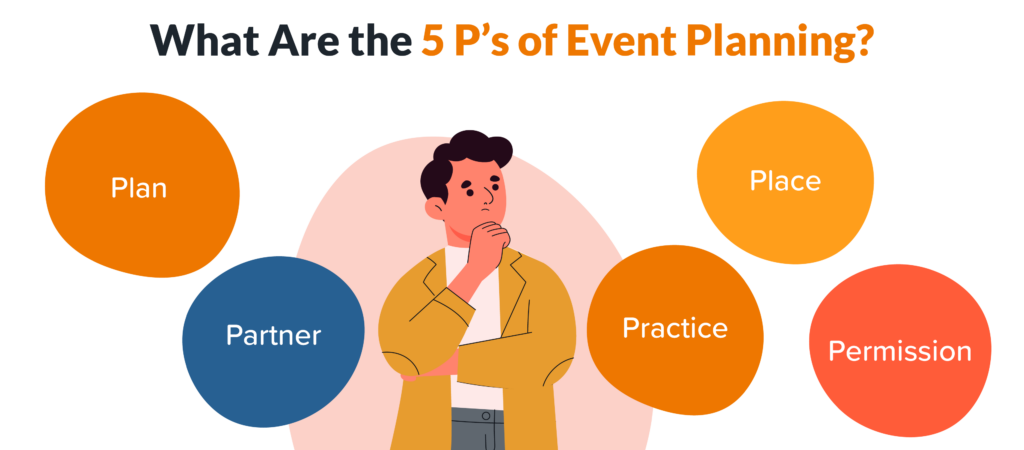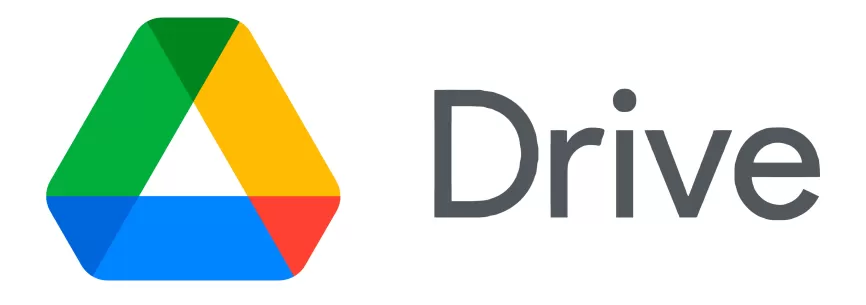17 Event Marketing Strategies to Boost Engagement & Drive Sales
Why might two similar events experience drastically different results? Even if they’re targeting the same audience, covering similar topics, and taking place in the same city, it’s possible that one might flop while the other draws a crowd. It all comes down to the event marketing strategies behind them!
A strong event marketing strategy isn’t just about getting the word out about your conference, expo, trade show, or event; it’s about compelling your audience to take notice and take action by registering and attending.
From in-person gatherings to virtual meet-ups, event marketers face a range of challenges and opportunities. To be effective, event marketing requires a perfect balance of creativity, strategy, and adaptability–and your event marketing strategy can make all the difference.
As we delve into event marketing best practices, we’ll arm you with tools, tips, and tricks that can transform your next event from just another date on the calendar to an unforgettable experience.
What Are Event Marketing Strategies?
Event marketing strategies cover the tactics, techniques, and plans event organizers deploy to promote their events and drive attendance. Event marketing strategies are kind of like your party-planning playbook.
But don’t be mistaken—this doesn’t simply involve advertising. Think of your strategy as a holistic approach that integrates elements like branding, target audience identification, communication channels, and content creation to ensure your event reaches the right people and creates a buzz. Connecting the event’s purpose and goals to its potential attendees ensures they see the value of participating.
What does that look like? We’re talking eye-catching digital ads, compelling emails, relatable social media posts, and maybe even an influencer shout-out or two. It’s all about the build-up, making sure folks don’t just hear about your event, but that they’re excited to be a part of it!
Why Is an Event Marketing Strategy Crucial for Associations, Corporations & Academies?
Whether you’re organizing a local workshop, a global conference, or an exclusive product launch, planning an event is no easy feat. After all the time and effort you’ve put into organizing, it’d be a shame if those who’d love to attend didn’t find out about it!

That’s why creating a sound event marketing plan is paramount. Sticking to a plan ensures every decision you make aligns with your overarching objectives. Nailing your marketing strategy can provide:
Increased revenue
Think beyond just ticket sales. We’re talking about sponsors who want their logos everywhere, vendors setting up stalls, and perhaps even selling that amazing keynote speech later on. A great marketing strategy gets more eyes on your event, which translates into more revenue.
Stronger client and industry relationships
Alright, we all know events aren’t just about fancy presentations. It’s about meeting folks, getting to know key players in the industry, and making those all-important connections. The better your marketing, the better the crowd, and the better the post-event chat in the industry!
New leads for your database
Every registration, every QR code scanned means someone potentially saying, “Hey, I want to hear more from you!” Remember, as you pull in the crowds, you’re also building a high-value list for your next event or product launch.
Increased awareness
Got a big announcement? Maybe a new product or a groundbreaking bit of research? A solid marketing plan ensures your message doesn’t just echo in the hall but creates a real buzz within your industry. Remember: Marketing your event isn’t 100% about filling empty seats. It’s about making waves, growing, and being the talk of the town (or industry!). And the right event marketing strategy? Well, that’s your ticket to success!
17 Types of Event Marketing Strategies
Getting started with event marketing tips and strategies can feel a bit like navigating a bustling city for the first time. There are so many avenues to explore, each promising unique opportunities and challenges.
Let’s take a guided tour through the different channels and see what each brings to your event marketing table.
Paid marketing
The marketing equivalent of the fast lane! Paid marketing, like pay-per-click (PPC) ads and sponsored content, offers immediate visibility. It’s perfect for reaching a specific audience quickly, but it often comes at a higher cost.
Email marketing
The best email marketing is personalized, direct, and often expected by your audience. A well-crafted email campaign can not only inform but excite potential attendees!
Social media marketing
Platforms like Twitter, LinkedIn, Instagram, and TikTok allow for dynamic interaction. They’re ideal for providing regular updates, engaging teasers, and getting real-time feedback.
Updating your website
Your website is like your home base. Optimizing your event page ensures that those who are curious about you can find answers to all their questions. Plus, it’s the official go-to for registrations and detailed info about your event!
Content marketing
Content marketing is a great way to inform your audience and build your reputation as a thought leader within your industry. Whether you focus on blogs, videos, podcasts, or something else, you can leverage content marketing to educate your audience and build anticipation for any upcoming events.
Influencer marketing
Collaborating with industry influencers can amplify your message, especially if they have a following that matches your target audience.
Event listing sites
The town bulletin board. Posting on sites like Eventbrite or Meetup can increase visibility, especially for those just casually browsing for events.
PR
The town crier! Press releases or media collaborations can generate buzz, especially if you can make your event stand out from the crowd.
Forum engagement
Engaging in niche forums or groups can be like joining local clubs. That’s where you find genuinely interested folks and can have deeper, more focused conversations.
Email signatures and footers
Sometimes, the small gestures make a big impact. Adding event info in email footers subtly keeps it in the forefront, especially for regular correspondents.
Direct mail
Direct mail is old school, but it can help you stand out in today’s digital age. A well-designed invite or brochure delivered to their door can make recipients feel truly special.
SMS marketing
Texting your audience with SMS marketing is quick and direct! It’s like a tap on the shoulder, perfect for reminders, promos, or last-minute updates.
Existing events
Promoting your event at other similar events can tap into an already interested crowd, and it’s a great live event marketing method.
Mobile apps
Your event in their pocket! Event mobile apps can enhance the attendee experience, provide updates, and even facilitate networking.
Remarketing
Ever walked past a store and then decided to return? Remarketing is the digital version of that, reminding potential attendees of what they might be missing.
Community activation
Engaging your existing community, like members or past attendees, is a great way to rally your fans and advocates. With a little encouragement (and maybe a small incentive!), they can be your event’s most ardent promoters.
Swag and merch
Everyone loves goodies. Branded merchandise can create buzz and make your event memorable long after it’s over.
How to Create an Event Marketing Plan
Now that we’ve looked at the different types of event marketing, it’s important to remember that you don’t need to invest in every single channel.
Rather than trying to market everywhere, focus on the channels and tactics most aligned with your event and audience. After all, a good event marketing plan is about making genuine connections and creating memorable experiences.
Not sure where to start? Here’s an overview of the steps you need to reach your destination:
Define your goals
What’s your destination: Are you aiming for brand awareness, attendee engagement, or a certain number of ticket sales? Nail down what success looks like for you.
Set a budget
Remember, every great event has a budget. Know what you’re willing to spend on marketing to get the desired outcomes. This will guide your choices down the road.
Create your brand and voice
Your event’s personality! Decide on the colors, fonts, and tone that will represent your event. Consistency is key to being memorable.
Choose your tools
There’s an array of event marketing tools out there—from email marketing platforms to social schedulers. Make sure they align with your strategies.
Define your audience
Who are you speaking to? Identifying your audience’s preferences, demographics, and habits will help tailor your message.
Find your audience and channels
Now, where do these folks hang out? Is it Instagram? LinkedIn? Email? Direct your efforts where they’ll be most seen and appreciated.
Create an event marketing calendar
Plot out key dates. When will you launch your PR? Send your first email? Having a timeline keeps things on track.
Create your marketing collateral
Brochures, banners, and digital ads, oh my! Having these ready in advance ensures a consistent and timely rollout.
Refine your CTAs
Your call to action is the hook! Make it compelling, clear, and aligned with your goals.
Test and QA everything you need to
Nothing spoils the mood like a broken link or typo. Double—no, triple-check everything.
Go live across channels
It’s showtime! Execute your plan and watch the magic happen.
Send out your PR blast
Get the media involved. A well-timed press release can amplify your reach.
Ask your speakers to share
Your speakers have followers too! Equip them with shareable content and collateral, and watch your visibility soar.
Track success, pivot as needed
Not everything goes as planned, and that’s okay. Track metrics and be ready to tweak your event marketing strategy for even better results.
Measure results
Post-event, it’s analysis time. Did you hit your goals? What worked, and what didn’t?
At the event: Track session and event attendance
Track attendance at specific sessions and ask attendees what they love and where you can improve.
Post-event marketing
The event might be over, but the marketing isn’t. Share highlights and photos, and engage with attendees online.
Benchmark for next time
Note down what worked best. That’ll be the foundation for your next event’s marketing plan.
What Are the 5 Ps of Event Planning?
The 5 Ps are the guiding principles of event planning. Whether you’re focused on live event marketing or creating a virtual event marketing strategy, the 5 Ps remain timeless in their importance.

- Plan. Every great event starts with a plan. Your event marketing plan is the blueprint of what you want to achieve. It should outline everything from the event’s objective to the tiniest details like napkin colors. A thorough plan can make the difference between an event that feels seamlessly orchestrated and one that doesn’t.
- Partner. Unless you’re a magician, it’s tough to pull off an event solo. This is where partners come into play. From vendors to sponsors to keynote speakers, choosing the right partners can elevate your event to the next level.
- Place. Your venue is more than a backdrop—it sets the mood for your event. Whether you host an event in a grand ballroom, a cozy cafe, or a virtual space online, ensure the setting aligns with your event’s purpose and accommodates your audience comfortably.
- Practice. Ever heard of a dress rehearsal? Just as actors practice before the curtain rises, event planners should run through the day’s events in advance. This helps iron out any wrinkles and ensures everything runs smoothly on event day.
- Permission. In the age of data protection and increased focus on privacy, ensuring you have all the necessary permissions is crucial. This might relate to venue licensing, data collection from attendees, or even content and media permissions. Better safe than sorry!
When you master the 5 Ps, you’re not just planning an event—you’re orchestrating an experience that attendees will remember.
12 Event Marketing Tools to Amplify Your Strategy
Simply having an event marketing strategy in place isn’t enough on its own—you also need the right tools to bring that strategy to life. From designing visually appealing graphics to managing your team’s tasks, there’s a tool for almost everything!
Let’s unpack some of the finest tools in the event marketer’s toolbox:
Canva

Your event deserves to shine brightly and Canva helps it do just that. This graphic design platform makes it easy to create promotional materials, even if you’re not a design pro. With templates galore, you can whip up everything from event posters to social media graphics in no time.
Asana

If managing your event marketing feels like a juggling act, a tool like Asana can ensure you don’t drop the ball. This task management tool lets you keep tabs on every detail, assign tasks to specific team members, and ensure nothing falls through the cracks.
HubSpot CRM

You already know that a healthy relationship with your attendees is gold. A customer relationship management tool like HubSpot CRM helps you maintain this bond by managing and analyzing customer interactions and data. Stay on top of leads, ticket sales, and attendee preferences with ease.
HubSpot

In the world of event marketing tech, HubSpot stands as a beacon for inbound marketing, sales, and service. Create content that attracts attendees, manage your leads efficiently, and analyze the success of your campaigns—all under one digital roof.
Google Analytics

If knowledge is power, then Google Analytics is your event’s powerhouse. Track your website traffic, see which marketing campaigns are most effective, and gain insights into what your potential attendees are looking for.
Google Search Console

Want to see exactly where your event website stands in the vast sea of search results? Google Search Console can tell you everything you need to know. It’ll give you insight into your site’s search performance and potential issues, ensuring your audience can find your event when they tap that search bar.
Hootsuite

Social media and events go together like popcorn and movies. Hootsuite is a social media management tool that helps you take control of all your social media channels in one place. You can use Hootsuite to schedule posts and engage with your audience to ensure your event gets the online buzz it deserves.
Mailchimp

Email might be old school, but it’s still a major player in the event marketing game. Platforms liek Mailchimp simplify the process of designing, sending, and tracking your email marketing campaigns, ensuring your invites and updates land in the right inboxes.
Buffer

Think of Buffer as your social media butler. It lets you schedule, publish, and analyze all your social media posts in one place, which is perfect for ensuring consistent updates about your event across different platforms!
Sprout Social

Social listening is the name of the game with Sprout Social. Monitor your brand mentions, engage with your audience, and dig into analytics to understand the social pulse of your event.
Trello

For visual thinkers, Trello is a godsend. Create boards, lists, and cards to organize your event tasks. It’s like having a digital whiteboard where your whole team can collaborate and visualize the event planning progress.
Google Drive

Collaboration is the backbone of event planning. Google Drive offers a space for your team to store, share, and collaboratively edit documents, spreadsheets, and presentations, ensuring everyone is on the same page.
How to Measure Event Marketing Success
So, you’ve put in the hard yards with your event marketing strategy and want to make sure it was all worth it. Determining the success of your event marketing is crucial not only to justify the resources spent but also to refine and optimize future campaigns.
Here’s a dive into how you can measure the success of your event marketing:
Define clear objectives
Understand your goals, whether that’s boosting brand awareness or fostering networking. Having a clear event marketing strategy and goal extends to your post-event evaluation!
Track registration and attendance numbers
A high sign-up rate is great, but how many of those registrants actually attend? Track these numbers to understand event appeal and identify possible pain points.
Measure attendee engagement
Use live polls, Q&A sessions, and event marketing tools throughout your event to see how involved your attendees really are.
Evaluate networking effectiveness
Good networking is a sign of event marketing success. Consider counting the number of meetings booked through your event app or the number of leads your exhibitors were able to capture.
Assess feedback and satisfaction
Post-event surveys are a goldmine of attendee feedback! Learn from comments and refine your event marketing plan for the future.
Calculate financial ROI
Compare your costs against revenue. If you’ve got a positive return on your investment, that’s event marketing success you can take to the bank.
Analyze digital engagement
With tools like Google Analytics, you can track website visits, social mentions, and more to gauge your virtual event marketing strategy.
Study long-term impact
Look beyond the immediate aftermath. Did you land new business deals, find new partnerships, or make plans for collaborations down the line? Those are valuable post-event results!
Leverage event technology
From tracking app usage to virtual booth interactions, using the right event marketing tools can give insights into your campaign’s success. Based on the data and insights you collect and analyze post-event, you can make adjustments to evolve your event marketing strategies to achieve the best outcomes!
Do You Need an Event Marketing Consultant?
Even with a robust event marketing plan in hand, executing it to perfection can be tricky. If your team has limited experience or you’re venturing into new event territory, a consultant might be the boost you need to get ahead!
Event marketing consultants are seasoned pros who have the expertise to ensure you’re applying events marketing best practices. They can also provide invaluable insights tailored to your specific needs.
Of course, bringing on a consultant is an investment. But think of it as gearing up for a mountain trek. Sure, you could do it solo, but it’d be safer—and potentially more rewarding—with the help of an experienced guide. An event marketing consultant can help you avoid pitfalls, maximize ROI, and truly shine in the spotlight of your event.
Navigating the Event Marketing Landscape
Success in event marketing doesn’t happen overnight. It’s a blend of meticulous planning, understanding your audience, leveraging the right tools, and staying adaptable.
With the right event marketing strategies, tools, and perhaps even a knowledgeable consultant by your side, your events can transform from mere gatherings to powerhouse opportunities for brand growth. Remember, every event is a unique chance to showcase what you bring to the table, foster relationships, and create lasting impressions.
Event management software like EventMobi can help you keep up with event marketing trends. Come chat with our team to see how we help you host an event that not only captivates but converts!
Ready to measure the success of your event marketing strategy? Use our social media dashboard to track engagement in real time!